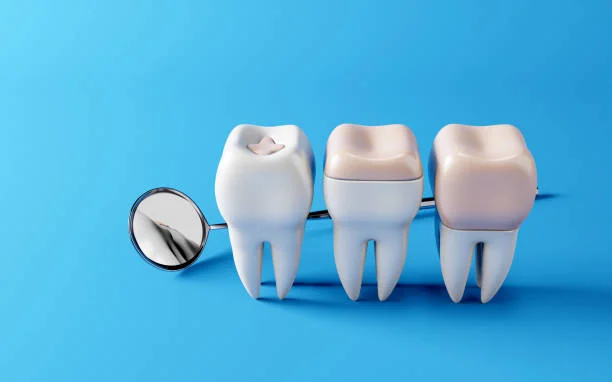Dental technology has grown over the years, and dentists have access to a wide variety of dental materials to make products like implants and dentures for their patients. One material dental labs use is ceramic, which is manufactured to mimic the shape and color of natural teeth for patients. Here are the advantages of ceramic dental restorations:
Natural Appearance and Color
When made by professional dental labs, ceramic implants and crowns may be indistinguishable from real teeth, which makes them the ideal choice for patients whose goal is enhanced aesthetics. The shading on dental ceramics matches the color of real teeth. Dental labs customize them to match the unique shading of people’s teeth. They do this by layering the ceramic. The restorations have the translucency of natural enamel, which adds to their natural appearance. They also have no metal underneath them; they do not leave a dark line on your gum line characteristic of metal-based crowns. Dentists should instruct their patients to properly clean the ceramic implants; this helps prevent the dental restorations from discoloring from improper cleaning or excessive use of acidic beverages.
Biocompatibility and Comfort
Ceramic is a hypoallergenic material, and some dentists prefer this material over others for patients with teeth sensitivities. Oral tissues may be unlikely to react to ceramic; this minimizes the possibility of inflammation or post-treatment complications after a dental restoration. Unlike metal restorations, which conduct heat and cold, ceramic is an insulator and does not cause temperature sensitivity.
The smooth surface on ceramic restorations is more comfortable for patients since it minimizes the likelihood of mechanical irritation of soft oral tissues. Ceramic implants also attract less bacteria and plaque and thus contribute to your dental hygiene and lower chances of getting infections.
Structure and Durability
Ceramic restorations may require fewer modifications to the tooth structure because they are manufactured to match the shape and size of the patient’s existing teeth. Dental ceramics strengthen weak teeth so that there will be fewer chances of them breaking or cracking when you bite down firmly. The secure fit of the restorations also may not exert pressure on neighboring teeth, and their secure fit gives patients a natural bite, reducing the possibility of jaw misalignment.
Manufacturers use high-strength ceramics to develop long-lasting dental restoration items that, under proper care, can last for several years. Ceramics, when bonded correctly, are resistant to wear and tear, which increases their lifespan. This minimizes their risk of cracks or breakage during chewing. Dental ceramics are also resistant to abrasion; this allows them to maintain their original shape and smoothness even after prolonged use. Because they are precisely adapted to a patient’s tooth structure, ceramic dental restorations are not likely to warp over time.
Single-Unit Design
Unlike some traditional dental restorations, which have multiple parts, manufacturers can design dental ceramics as a whole piece that fits over the desired area; these single-unit pieces include posterior or anterior crowns. The design helps decrease the time patients spend in the office; this is because dentists do not need to place individual parts in dental restorations. Fewer adjustments may be needed with a single-unit design.
Ceramic Versatility
Ceramics are a versatile material that manufacturers can use to create a wide variety of dental restorations. There are different types of dental ceramics, each with unique characteristics that are ideal for various types of restorations. Dental ceramics can be used to replace the back teeth, where more force is experienced while chewing. Glass ceramics, made by strengthening glass through controlled heat treatment, work well for anterior restorations. Lithium disilicate ceramics are translucent and are applicable in restorations such as veneers and onlays. Porcelain ceramics are an ideal aesthetic option; they may be used by manufacturers to make veneers that dentists apply over high-strength ceramic materials.
Get Custom Ceramic Restorations from Dental Labs
Dental ceramic restorations are a reliable, long-lasting option for dentists with patients who need the look and functionality of real teeth. The durability of ceramics provides people with strong implants that may not break. Dental labs make custom ceramics to fit every patient’s dental structure, providing a proper fit for comfort and keeping the teeth aligned. Consult a dental technician to help you select the right dental ceramics for your needs.
Explore more stories that inspire, inform, and spark new possibilities at Management Works Media.






